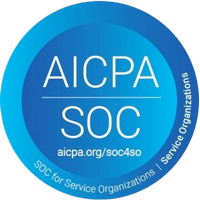The Future of Assisted Living
As baby boomers age, there will be an unprecedented increase in the number of seniors in American healthcare systems. The U.S. Department of Housing and Urban Development reports that over the next 40 years, the population of Americans over the age of 65 could double from 40 to 80 million. The population over 85 could grow even more dramatically, going from 6 to 20 million. These increases will have a direct impact on the future of assisted living.
We review three major ways America’s aging population will affect healthcare.
1. Massive Demands on Senior and Assisted Living
As anyone who works in an assisted living community will tell you, managing residents and staffing shortages already isn’t easy. Assisted living is dealing with two contradictory concerns: low residency due to COVID-19 and the anticipation of exploding demand in the near future. Assisted living communities will be challenged to tackle an increased volume of patients in the years to come. In fact, it’s predicted that the number of senior adults needing long-term care will triple by 2050. To make matters worse, nursing schools only saw a 5% enrollment increase in 2019, so it’s likely that the staffing shortages will worsen. In the future, hiring quickly will be more important than ever.
2. Competition Between Assisted Living and Home Health
As older Americans look for care options, healthcare businesses may find themselves facing increased competition. The number one growth job in America is the home health aide. The number of home health aides working today has doubled in the last ten years, with 2.2 million people working in home health care. The future of assisted living will likely include increased competition from home health care.
Home health care’s growth reflects changing priorities among patients; more and more people want to age at home. Community and connection are more valued than ever. In order to compete, assisted living communities will have to create an environment for their residents that really feels like home.
3. A Worsening Nursing Shortage
As communities plan for the future of assisted living, they face nursing shortages in the present. The nursing shortage, which has strained healthcare so dramatically over the course of the COVID-19 pandemic, will continue to cause issues in the future. Without adequate staff to care for patients, the impact of the aging population on the healthcare system will only be more extreme.
A 2021 survey reported that only 4% of assisted living communities say that they are fully staffed, while 82% report moderate or severe shortages. Healthcare employee shortages can cause a cascade of consequences. Staff shortages cause stress and burnout. And, of course, a lack of healthcare staff can negatively impact patient care.
How to Plan for the Future
Needless to say, there are a lot of hurdles facing senior care. But there’s still time to prepare for the new surge of patients. With proper planning and a refined hiring strategy, healthcare providers can rise to the challenge. Here’s how.
Optimize Your Hiring Process
Your hiring process has a major impact on your staffing. A better hiring process reduces no-shows and may help you improve retention. When turnover does happen, an efficient hiring process will ensure you don’t stay understaffed for long. Texting candidates, automating routine steps in the hiring process, and using an applicant tracking system like Apploi can all help you hire quickly and effectively. Not sure where to start? Consider a recruitment audit to learn how your current process is working.
Improve Company Culture
Even with excellent compensation and benefits, candidates will notice an unhealthy company culture. A healthy culture among employees will also contribute to a healthy community among residents. Cultivate work-life balance, offer flexible benefits, and invest in your employees through training and workshops. Explore more tips for improving your company culture.
Cultivate Community
Compared to other types of healthcare, senior and assisted living often offer relatively long stays. It’s in your best interest to make your community feel like home. When employees are happy, clients notice (and vice versa). Competitive compensation, shift flexibility, and flexible benefits can all boost both employee satisfaction and resident retention. Take initiative to create an environment where employees and clients can form meaningful connections.
Better Hiring With Apploi
Apploi streamlines your hiring process so you can tackle whatever the future brings. Interested in learning more about how you can recruit, hire, and onboard healthcare staff quickly? Contact us today for a free demo of our end-to-end talent management solution.





